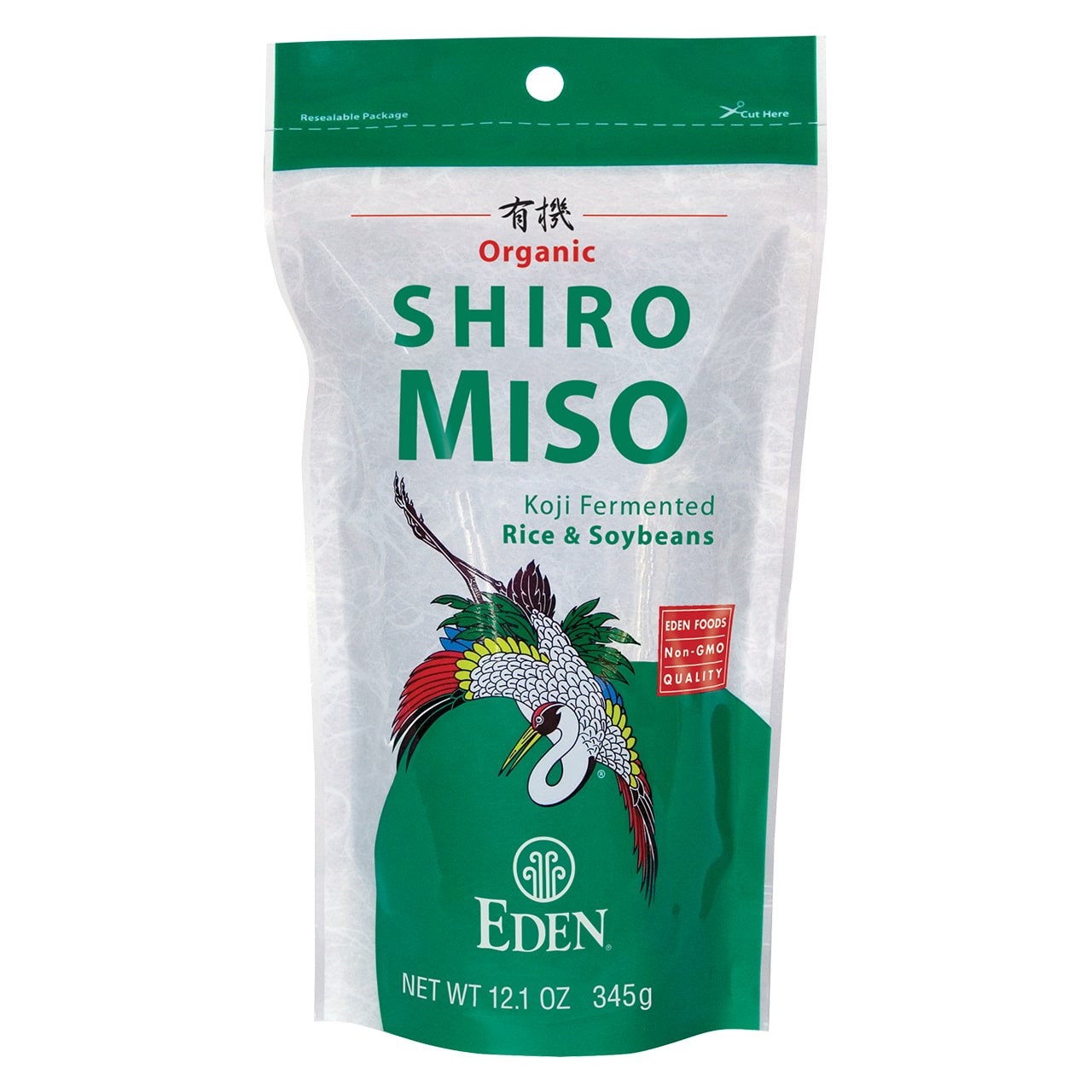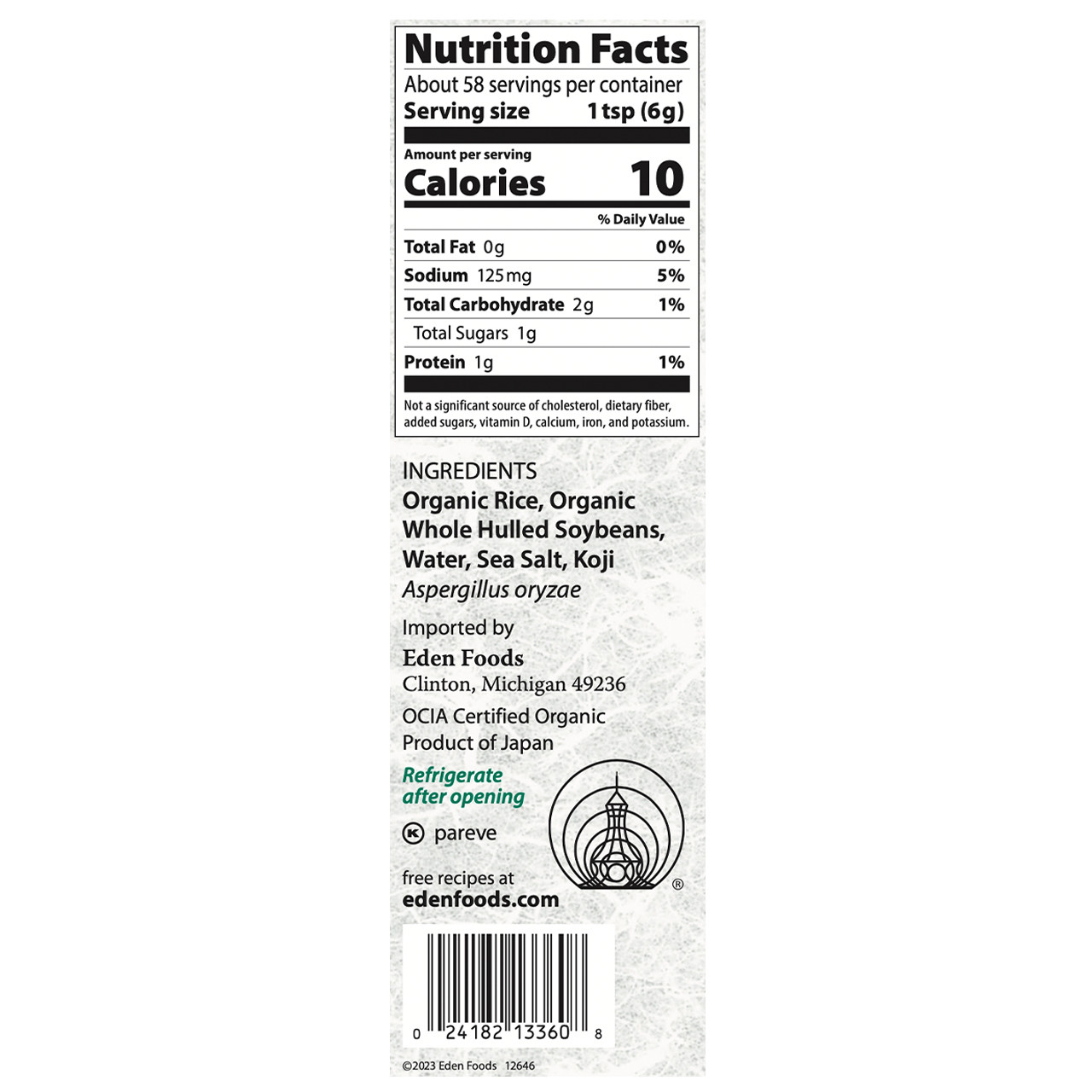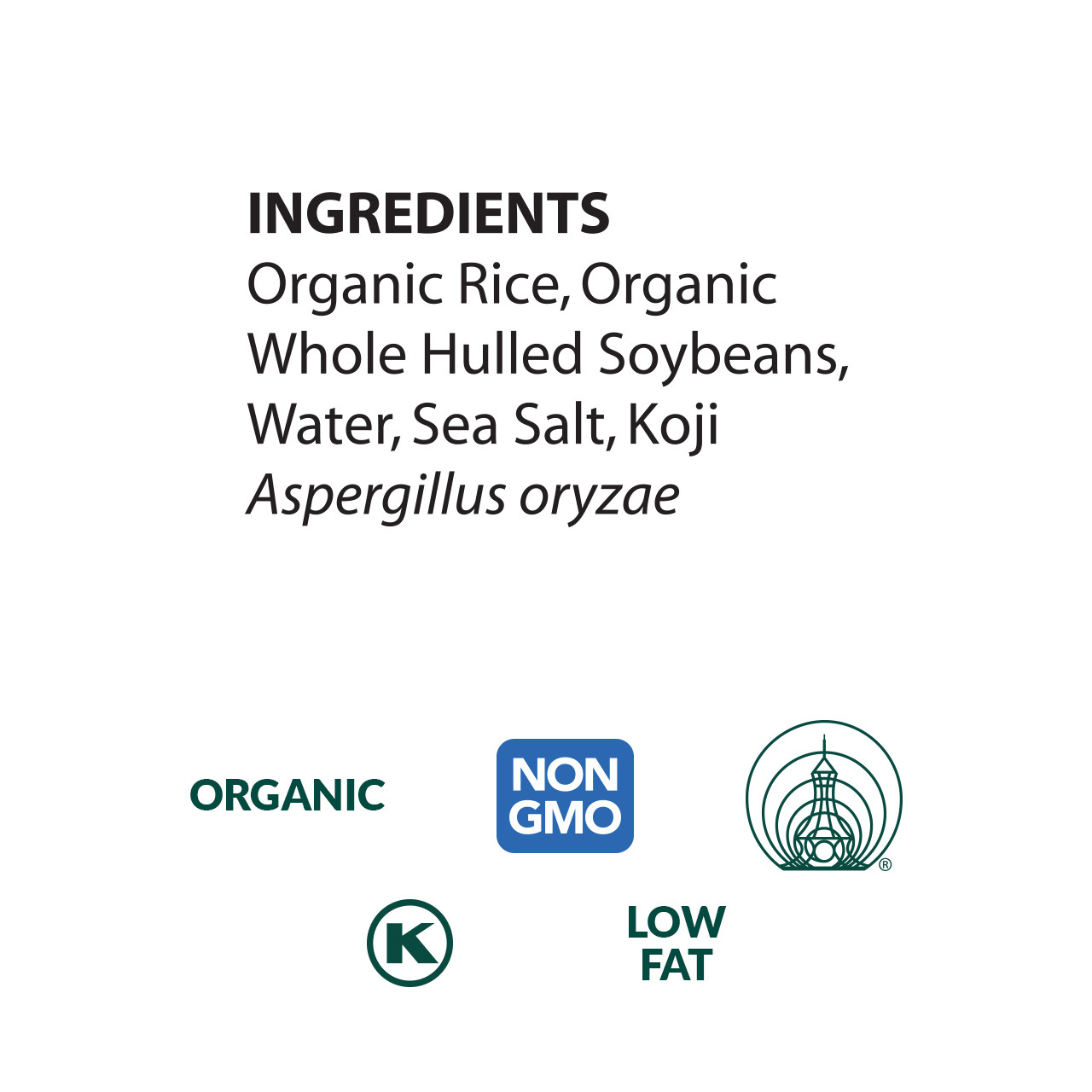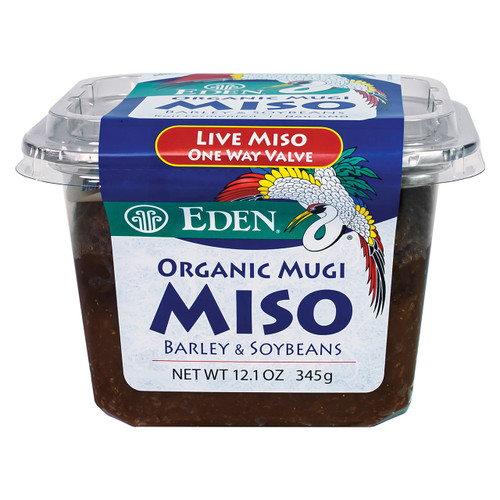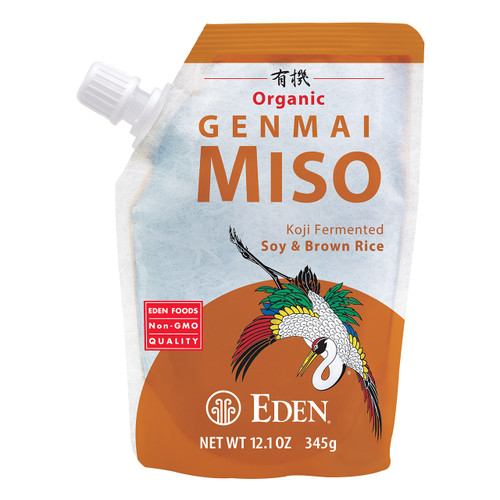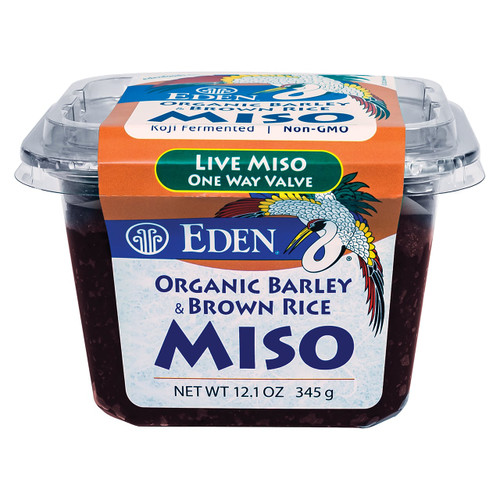The golden paste Shiro Miso is the sweetest, lightest, youngest miso, and is extremely popular in Japan. It has half the salt of other misos and is also called 'sweet white' or 'Kyoto-style' miso. It's ideal for warm weather as a seasoning, a dip, in soups and dressings, as a marinade, or spread on potatoes, sweet corn, and bread. Miso-Tahini is a supreme bread spread. Digestive enzymes, protective isoflavones, and fatty acids in miso contribute to good health. Easy to use in a resealable standing pouch. ![]()
DETAILED DESCRIPTION
Eden Shiro (Rice) Miso is often referred to as 'sweet white' or 'Kyoto-style' miso. The main ingredients in shiro miso are koji fermented organic rice and steamed non-GMO, organic whole soybeans that have unique beneficial qualities and are easy to assimilate. Healthful bacteria and enzymes break down the carbohydrates and proteins into easily assimilable sugars and amino acids, beneficial digestive enzymes, vitamins and minerals. Such high quality miso is five times higher in protective isoflavones than other soy foods.
Eden Shiro Miso is the product of generations of experimentation and perfected techniques by a family owned company that has manufactured miso on their present remote, mountainous location for over 200 years. Their simple, delicious recipe has been handed down for generations. The family's dedication to quality results in an extraordinary line of miso and handcrafted koji.
To make Eden Organic Shiro Miso the rice is cleaned, steamed and then inoculated with koji aspergillus oryzae, an enzyme producing spore culture that is also used in the production of shoyu, tamari, amazake, sake, and rice vinegar. The inoculated rice is then mixed with cooked hulled soybeans, pure water, and sea salt. The mixture is placed in large kegs where it is aged, and fermented in a non climate controlled environment until finished. Shiro is one of the quickest miso varieties to make, taking only a few weeks depending upon the season. With shiro miso the ratio of koji to soybeans is twice as much as with other types of miso, the amount of sea salt is much lower as well. Shiro ferments much more quickly than darker miso varieties. When fermentation is complete, it is double bagged in a resealable standing pouch. No chemicals or additives of any kind are used whatsoever.
A fermented soybean paste, miso is a fully fermented mixture of soybeans, salt, and usually one cereal grain. There are two theories as to miso's origin: one claims that miso was introduced to Japan from China during the 6th century; the other claims that miso was Japanese right from the start. Buddhist priests were largely responsible for teaching the art of making and use of miso throughout Japan. There are legends dating before Chinese influence during the mythological 'Age of the Gods' that tell the story of a deity who transferred this art of making miso to man as a gift to assure health, happiness, and longevity.
Miso is rapidly gaining recognition in the West as a protective, delicious super food. Miso contains a wealth of enzymes and microorganisms that aid digestion and help to build healthy intestinal flora while keeping undesirable flora in check. During fermentation the protein of the soybeans and grain are disassembled into amino acids, including all eight essential ones. The enzymes in miso aid in the digestion of protein and starches in grains, beans, and vegetables, making it an essential addition to a vegetarian or mostly vegetarian way of eating. Fermentation breaks down the trypsin inhibitors in soybeans allowing for full utilization of the soy protein.
Eden Shiro Miso's light color, mellow sweet flavor and lower sodium content makes it the most popular type of miso in Japan. It is excellent for miso soup; bean, vegetable and noodle soups; as a seasoning in cooking; as a dip for vegetables (diluted to taste), in creamy salad dressing, or as a marinade. Top a baked potato or sweet corn with a small amount of shiro miso to add rich flavor and nutrition with very little fat.
